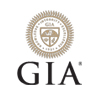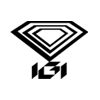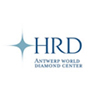Anyone who has ever purchased a diamond knows there is a whole lot more involved in the prospect than picking out one that looks beautiful. When making sure the quality stands up to the price tag is important, diamond certificates can be a wise safeguard. There are some instances, however, when seeking out a diamond that has been certified can end up costing the buyer more than bargained for. Loose diamonds do not always call for this extra layer of protection, but there are times when certification can be especially important.
A Look at Diamond Certificates
Diamond certificates are issued by independent gemological laboratories. These certificates, also called diamond grading reports, are issued after a laboratory, such as the Gemological Institute of America (GIA), HRD Antwerp or the International Gemological Institute (IGI) physically inspects a stone. These labs grade loose diamonds on such characteristics as color, clarity, polish, symmetry and florescence.
Diamond certificates provide consumers with an extra degree of confidence that the stone they are buying is genuine and has been accurately presented by a jeweler. Just like a home’s deed or a vehicle’s title, the document provides peace-of-mind backing for a diamond purchase and speaks to the specific
stone’s characteristics. The reports can offer insights on value, but rarely do they mention it directly.
It is important to note that a certificate is not the same as an appraisal. Rather, a grading report serves as a blueprint of sorts about a particular stone’s unique qualities. Grading reports generally feature analysis of a stone’s color, cut, clarity and carat size. They also contain diagrams that plot out a stone’s unique inclusions and may also offer insights about any treatment that has been made to enhance clarity or color.
A diamond certificate may not offer a specific value for a stone, but it does map out a diamond’s unique fingerprint, so to say. GIA certified diamonds and IGI certified diamonds are simply those that have been rigorously inspected and graded based on their quality.
About the Diamond Grading Institutes
Israel-Diamonds.com works with GIA, IGI and HRD Antwerp to have many of our loose diamonds graded and certified. All three gemology laboratories are highly respected in the field, providing detailed reports that speak to each stone’s unique qualities.
 |
|
GIA
This laboratory is considered the world’s largest nonprofit source of gemological knowledge. The organization is dedicated to providing diamond buyers the protection they seek and is responsible for creating the 4Cs and International Diamond Grading System. GIA has 19 locations across 14 different countries with a total of nine laboratories to its credit. It was founded in 1931 to serve not only as a laboratory, but also a teaching institute.
|
|
|
 |
|
IGI
This organization has laboratories across the world, including in such locations as New York, Los Angeles, Antwerp, Bangkok, Tokyo and Tel Aviv. In addition to serving as the world’s biggest independent certification and appraisal institute for gems, it offers courses meant for gemological professionals and consumers alike. It was founded in Antwerp in 1975.
|
|
|
 |
|
HRD
The Antwerp World Diamond Centre is the driving force behind HRD Antwerp. This private foundation was created in 1973 and follows rules set by the International Diamond Council (IDC) when grading loose diamonds.
|
Why Buy a Diamond Without a Certificate?
Grading reports from IGI, HRD and GIA can be quite useful for buyers while delivering peace of mind. These reports, however, are not always strictly necessary for loose diamonds that are under 0.50cts and those that are below average grade. It is simply more cost effective for buyers to purchase stones of this size and grading without certificates, especially when a reliable alternative is available.
At Israel-Diamons.com, we provide that alternative. We grade our smaller size, lower grade loose diamonds in-house. Our non-certified loose diamonds come with complete and comprehensive details about all quality factors. You’ll receive the same information from us that you would obtain from a typical diamond grading report. We have been in the profession of diamond manufacturing for more than 40 years – longer than most gemological laboratories – and we do stand by our excellent reputation for accuracy and integrity.
Most diamond grading is subjective and our expertise in grading loose diamonds is at least equal to that of the major gemological laboratories. We also offer a 30-day, no-questions-asked, money-back guarantee. We encourage our customers to take that time to have their loose diamonds inspected by a local diamond expert for a full evaluation. That is how confident we are in our grading ability.
If you decide you want to buy a non-certified diamond with certificate, we can arrange to have your purchase sent to a laboratory for grading. The cost is $100 per carat with a minimum of $79. If the lab report happens to show the diamond is below the grade advertised on our website, we will pay for the cost of the certification and you will be under no obligation to buy the diamond.
Regardless of where certification comes from, when customers buy loose diamonds from Israel-Diamonds, they can count on receiving stones that stand up to their online descriptions. After all, it’s been our business for more than four decades to earn customers based on the quality of work we do and the integrity with which we stand behind that work.




